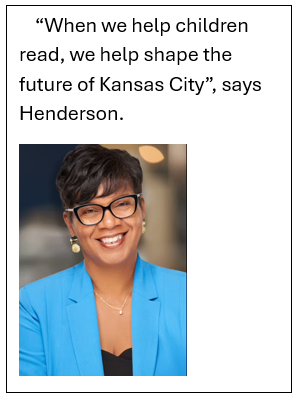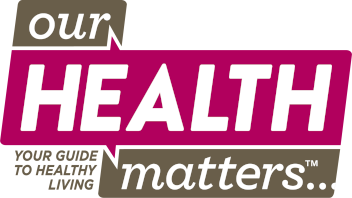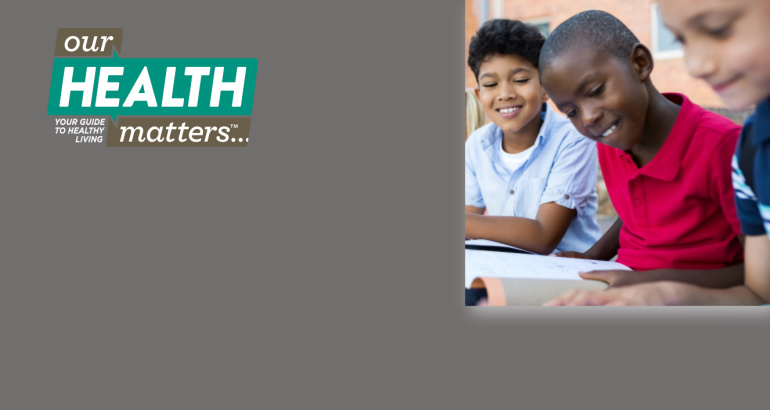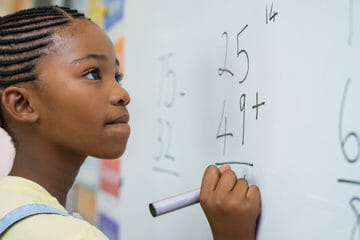
By Jeanene Dunn, OHM Staff
Across the country, in Missouri, and right here in Kansas City, third-grade students are struggling to read at or above their grade level. “Locally, only about one-fourth of third graders are reading at grade level,” says Dr. Robin Henderson, Chief Program Officer at SchoolSmartKC.
The decline in literacy rates has alarmed educators nationwide. In response, SchoolSmartKC has partnered with schools to launch “Literacy for All Students,” a campaign aimed at ensuring every child can read proficiently by the time they complete third grade. Literacy for All Students is part of a larger citywide effort to make reading success a shared community goal.
Why Third Grade Matters
By the end of third grade, students make a big shift from learning to read to reading to learn. If a child is still struggling by this point, every subject becomes more difficult. Beginning in fourth grade, reading becomes the way students absorb new information.

National studies show that students who are not reading at grade level by third grade are four times more likely to drop out of high school. Henderson says that third grade is a turning point. “When children leave third grade strong readers, they’re prepared for success in middle school, high school, and beyond.”
Early reading proficiency also affects more than academics. It influences future earning potential, job stability, and even health outcomes. That’s why Henderson believes it’s vital to identify reading challenges early and provide support right away. “Every child can learn to read. We just need to make sure they have a strong foundation.”
The Science of Reading Explained
Henderson explains that reading is a complex skill that has to be explicitly taught. “Educators at all levels are focused on making sure that teachers have the knowledge and skills to support students in their journey to being proficient readers.”
This evidence-based approach is referred to as the Science of Reading.
The science of reading isn’t a single program or method. It’s a body of evidence showing which teaching practices best help students become skilled readers. It goes beyond basic decoding – it covers word recognition, foundational reading skills, and the language comprehension needed for understanding meaning, building vocabulary, and gaining knowledge.
Parents Can Help Make Reading Enjoyable
Children thrive when they build strong foundations in sound awareness, phonics, and language comprehension.
Parents can help by:
- Playing sounds and rhyme games.
- Practicing letter-sound connections through fun, hands-on activities.
- Reading aloud every day while talking about the story.
Rich conversations build vocabulary and checking in regularly with teachers ensures that kids get the right kind of support. With small, consistent efforts, families can nurture confident, curious readers for life.
“When children are curious and confident, they want to keep reading,” Henderson says.
A Citywide Effort
SchoolSmartKC is focused on accelerating student growth and proficiency through intentional collaboration with educators and the community. They are currently working with students in 11 Kansas City-area elementary schools and organizations such as Turn the Page KC, Reach Out and Read KC and Dreams KC, which are bringing resources to families with the schools.
How All of Us Can Help
- Volunteer with organizations like Lead to Read KC or Turn the Page KC.
- Donate books or funds to local literacy programs.
- Advocate for literacy funding and reading support in local schools.
- Host a neighborhood book drive or restock a Little Free Library.
To learn more about the Literacy for All Students campaign, visit SchoolSmartKC.org.





